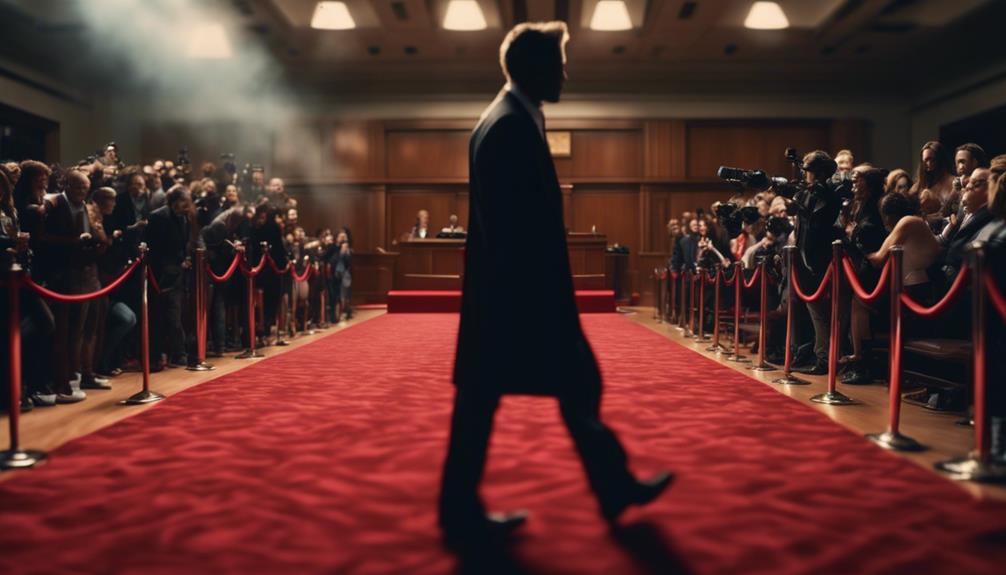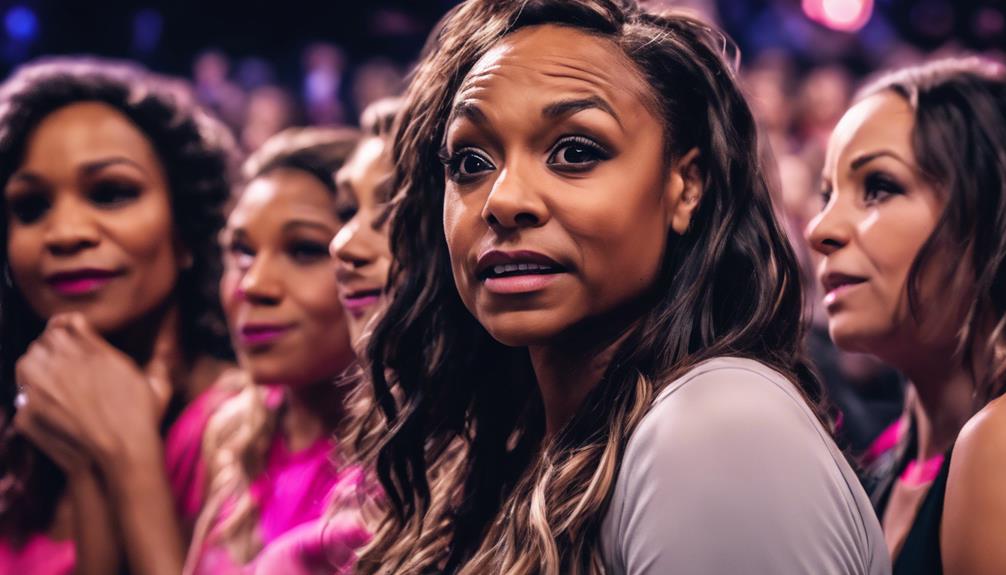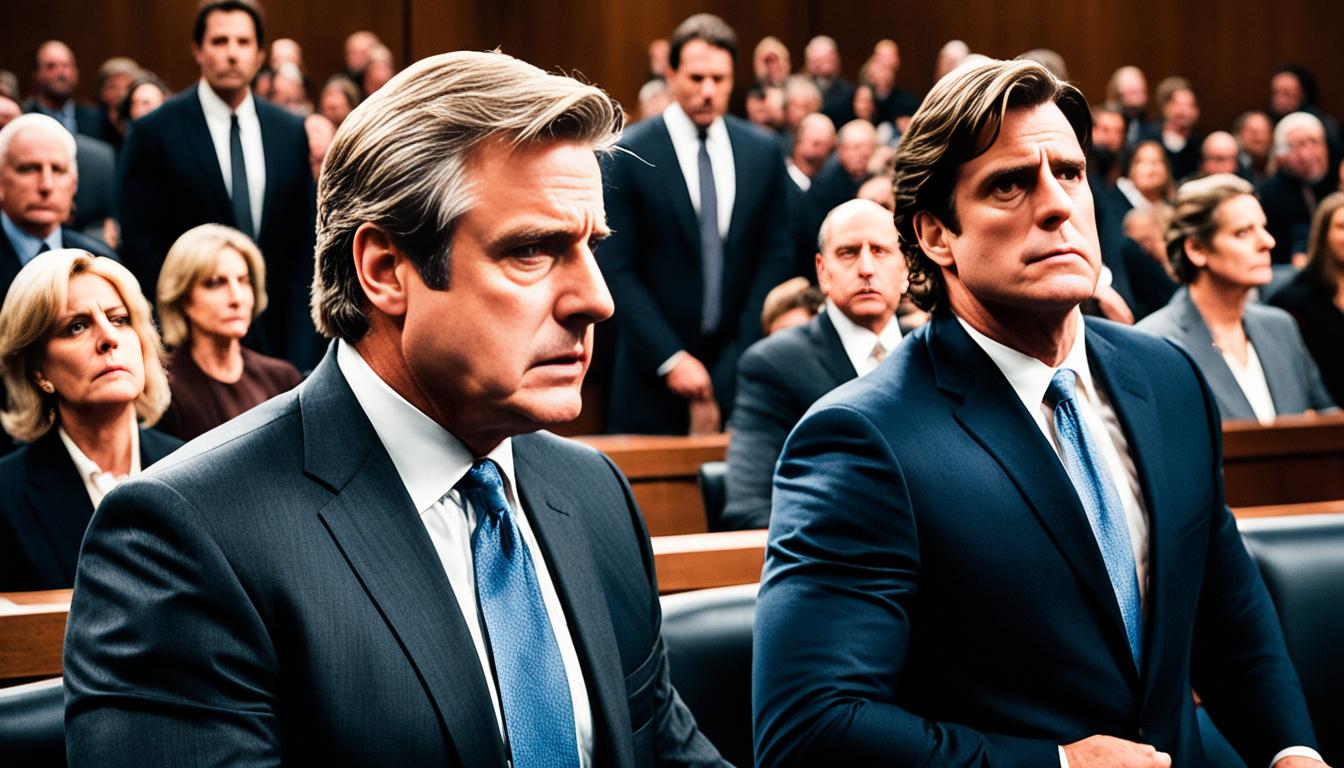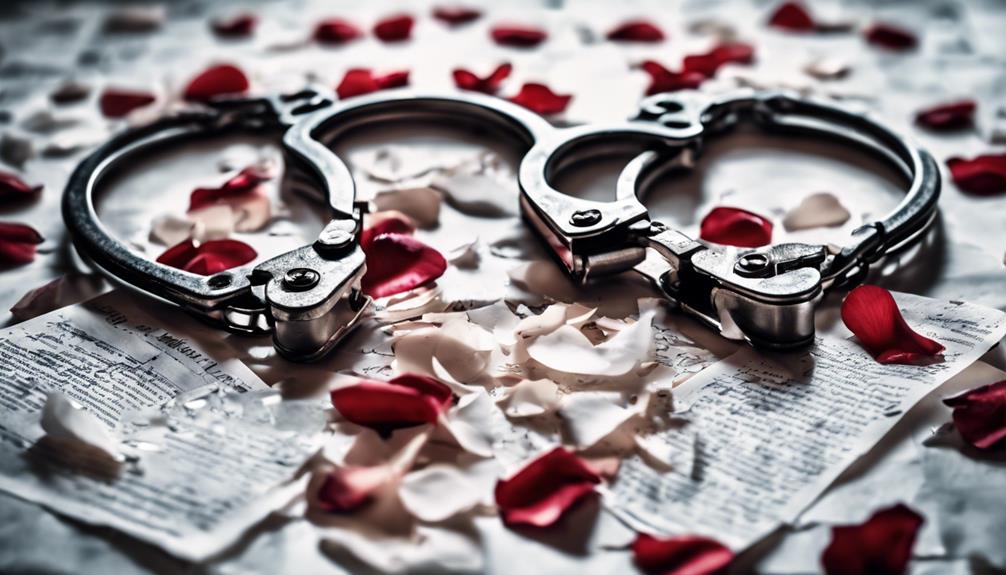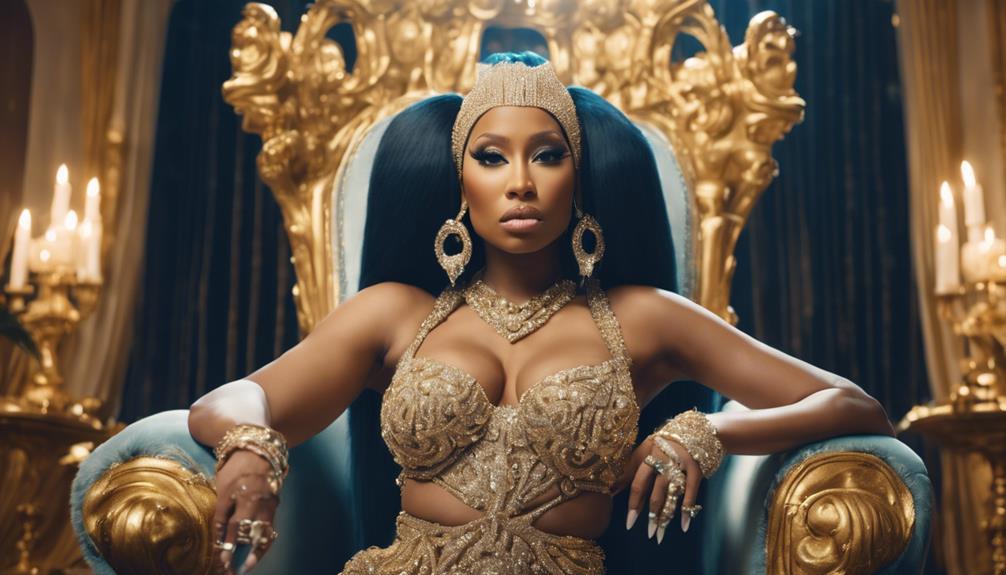Celebrity criminal trials, like the O.J. Simpson case, expose a complex web of media frenzy, racial tensions, and judicial bias. The accused's fame and fortune can greatly influence the trajectory of justice, with 70% of Americans believing that celebrity defendants receive preferential treatment. The O.J. Simpson trial's verdict and aftermath raised questions about the legal system's integrity and fairness. The case highlighted flaws in the system, including racial biases, and sparked national conversations about justice and celebrity influence. As the trial's complexities are unpacked, a nuanced understanding of the intersection of law and fame emerges, revealing the lasting impact of notorious trials on the pursuit of justice.
Key Takeaways
• Celebrity criminal trials, like O.J. Simpson's, spark intense media scrutiny, influencing public opinion and potentially impacting trial outcomes.
• The "Dream Team" defense, comprising renowned lawyers, can sway public perception and raise questions about justice and racial biases.
• The O.J. Simpson trial exposed flaws in the legal system, including racial biases, and highlighted the power of celebrity influence on legal proceedings.
• High-profile trials can lead to significant financial repercussions for celebrities, and civil suits can result in substantial damages.
• The O.J. Simpson trial's legacy raises ongoing questions about fairness, privilege, and the influence of fame on legal outcomes.
Accusation and Initial Response
On June 12, 1994, the brutal murders of Nicole Brown Simpson and Ron Goldman sparked a media firestorm, with former NFL star O.J. Simpson emerging as the prime suspect, his life forever changed by the accusations.
The District Attorney's Office launched an investigation, and Simpson's claim of innocence and alibi of being at home during the murders were met with skepticism. The New York Times reported that Simpson's lawyers were 'trying to create a reasonable doubt about his guilt.'
As the media frenzy surrounding the accusations intensified, Simpson became the prime suspect, and his life was put under a microscope. The public's initial reaction was split, with many in the black community rallying around Simpson, while others were more skeptical.
The stage was set for a dramatic trial, which would captivate the nation and raise questions about race, celebrity, and the justice system.
High-Profile Legal Teams
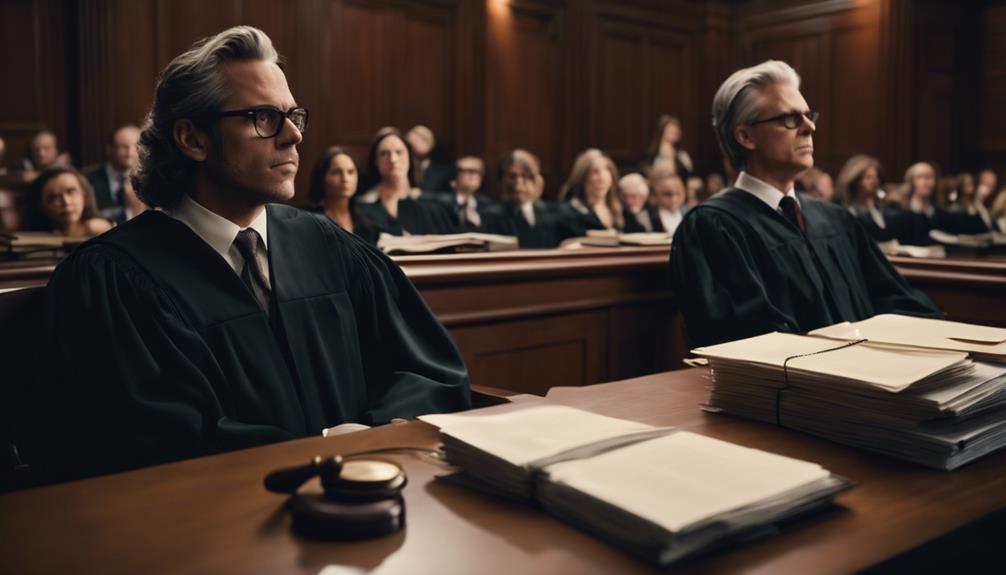
High-profile legal teams, often referred to as 'Dream Teams,' have become a hallmark of celebrity criminal trials. These teams are strategically assembled to provide a robust defense for high-profile defendants, leveraging the diverse expertise and experience of renowned lawyers.
In the O.J. Simpson trial, for instance, the Dream Team's collective efforts and legal tactics captivated the public and sparked debates on race, justice, and the influence of celebrity status in the legal system.
Dream Teams Assemble
Celebrity defendants often assemble dream teams of renowned lawyers, like Johnnie Cochran, Alan Dershowitz, and Robert Shapiro, to provide expert defense strategies and high-profile representation. These legal powerhouses are sought after for their exceptional trial skills and ability to navigate the complexities of celebrity criminal trials.
In the O.J. Simpson trial, the Dream Team, as it was called, included a roster of skilled attorneys known for their courtroom successes. The collaboration and expertise of these dream teams play an important role in shaping the defense and narrative in celebrity criminal cases.
Star Power Attorneys
Frequently, high-stakes criminal trials involving celebrities feature legal teams staffed by renowned attorneys who bring an exceptional level of expertise to the courtroom. These star power attorneys, like Alan Dershowitz, Robert Shapiro, and F. Lee Bailey, have a wealth of experience maneuvering through the complexities of high-profile cases.
The 'Dream Team', led by Johnnie Cochran, is a prime example of a high-profile legal team that successfully defended O.J. Simpson in his highly publicized trial. The involvement of such attorneys can greatly influence public perception and shape the narrative surrounding the case.
By bringing their legal expertise to the table, star power attorneys play a pivotal role in defending celebrities against serious criminal accusations and ensuring a fair legal process. Their ability to navigate the intricacies of celebrity trials is unparalleled, and their involvement often sets the tone for the entire case.
As a result, their presence can be a game-changer in the outcome of high-stakes celebrity trials.
Media Frenzy and Public Opinion
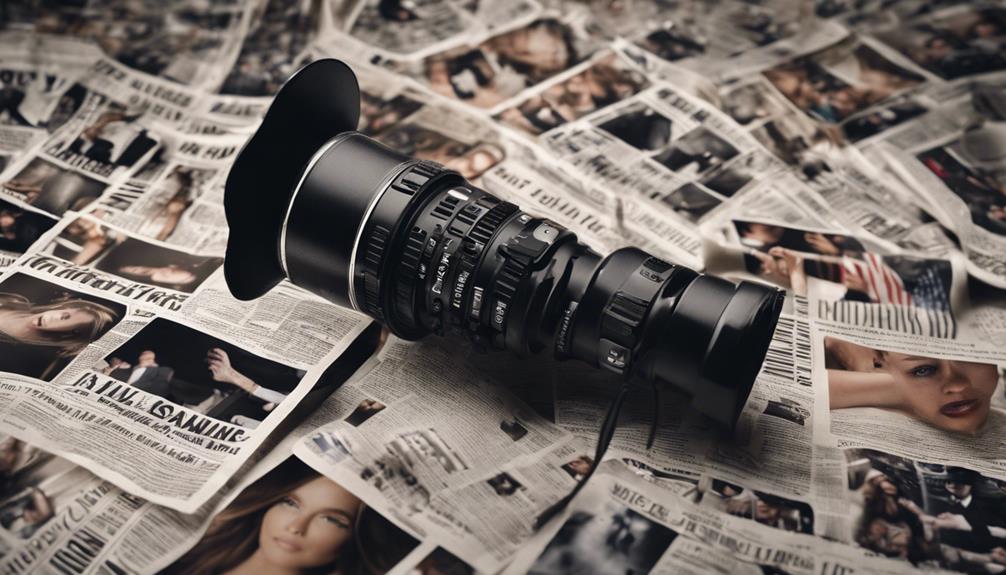
As the cameras roll and the headlines scream, media coverage of celebrity criminal trials sparks a frenzy that can make or break public opinion. The intense scrutiny of the accused and their legal proceedings creates a unique dynamic, where public reactions become polarized, with supporters and detractors taking strong stances based on media narratives.
Celebrities facing criminal accusations may experience a significant impact on their public image and career as a result of media coverage. The frenzy surrounding these trials often leads to intense scrutiny, where every move, statement, and action is dissected and analyzed. Public opinion can sway drastically, with the media playing a significant role in shaping perceptions of guilt or innocence.
In celebrity criminal trials, the media frenzy can be overwhelming, creating a perfect storm that can either salvage or destroy a celebrity's reputation. Ultimately, the intersection of fame, legal troubles, and media attention creates a unique dynamic in celebrity criminal trials, where the verdict is often influenced by public opinion.
Racial Dynamics and Judicial Bias
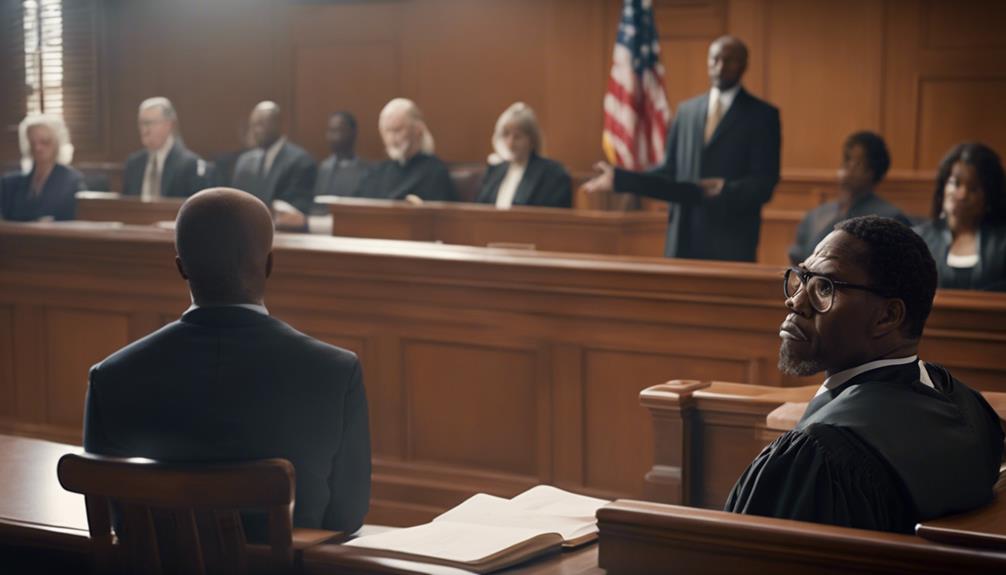
Racial dynamics and judicial bias have been contentious issues in high-profile celebrity trials. Concerns have been raised about biased judicial decisions and racial profiling in courts, which can significantly impact trial outcomes.
The O.J. Simpson trial, for instance, brought these issues to the forefront. It highlighted how racial tensions can influence legal proceedings.
As the criminal justice system continues to grapple with these complexities, it's essential to examine the role of racial dynamics and judicial bias in shaping the outcomes of celebrity criminal trials.
Biased Judicial Decisions
Judicial bias, fueled by racial dynamics, permeated the O.J. Simpson trial, sparking heated debates about preferential treatment and the integrity of the legal system. The trial highlighted issues of judicial bias, with debates on whether Simpson received preferential treatment due to his celebrity status.
The following factors contributed to the biased judicial decisions:
- Racial dynamics: Strong support from the African American community for Simpson's acquittal.
- Judicial bias: Debates on whether Simpson received preferential treatment due to his celebrity status.
- Defense strategy: The defense team strategically used race as a central theme in Simpson's defense.
- Public perception: Racial tensions and suspicions of a biased legal system influenced public opinion.
The intersection of race, celebrity, and justice played a significant role in shaping the outcome of the trial and public opinion. The defense strategy, which capitalized on racial dynamics, raised questions about the fairness of the legal system. As a result, the trial sparked a national conversation about judicial bias and preferential treatment.
Racial Profiling in Courts
Bias seeps into the courtroom, perpetuating systemic injustices as racial profiling influences judicial decisions, disproportionately affecting people of color. Racial profiling in courts involves biased treatment based on race or ethnicity, leading to disproportionate targeting and harsher sentencing for people of color.
Studies have consistently shown that people of color are more likely to be wrongfully convicted or face harsher penalties compared to their white counterparts. Black defendants, in particular, are more likely to be wrongly convicted or receive harsher penalties.
Judicial bias can have a profound impact on the fairness of trials, perpetuating systemic inequalities in the legal system. This bias can lead to unfair treatment, contributing to the already staggering disparities in the criminal justice system.
It's essential to acknowledge and address these biases to promote a more just and equitable legal system. As racial profiling continues to influence judicial decisions, it's essential to recognize its devastating impact on people of color and work towards a more fair and impartial justice system.
The Verdict and Its Aftermath
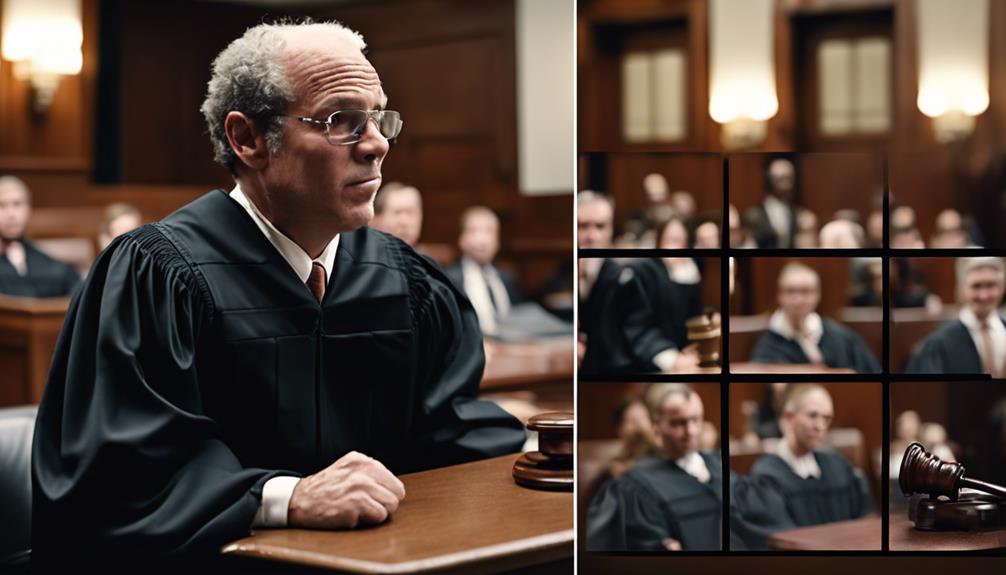
On October 3, 1995, the jury delivered a verdict that stunned the nation, acquitting O.J. Simpson of the murders of Nicole Brown Simpson and Ronald Goldman in a criminal trial that would go down in history as one of the most sensational and controversial of all time.
The verdict sparked intense debates on race, justice, and celebrity influence, with many questioning the legal system's integrity. In the aftermath, Simpson faced a civil trial in October 1996, where he was found responsible for the wrongful deaths and ordered to pay $33.5 million in damages.
The O.J. Simpson trial highlighted several key aspects of the legal system:
- Criminal trial vs. civil trial: The differences between criminal and civil trials were laid bare, with Simpson's acquittal in the former and guilty verdict in the latter.
- Public perception: Public opinion was deeply divided, with African Americans largely supporting Simpson's acquittal and viewing it as a victory against a biased legal system.
- Legal system flaws: The trial exposed flaws in the legal system, including racial biases and media influence.
- Complexity of criminal and civil law: The trial demonstrated the complexities of criminal and civil law proceedings, highlighting the need for reform.
The O.J. Simpson trial remains a landmark case, shedding light on the intricacies of the legal system and the power of celebrity influence.
Celebrity Trials and Social Impact
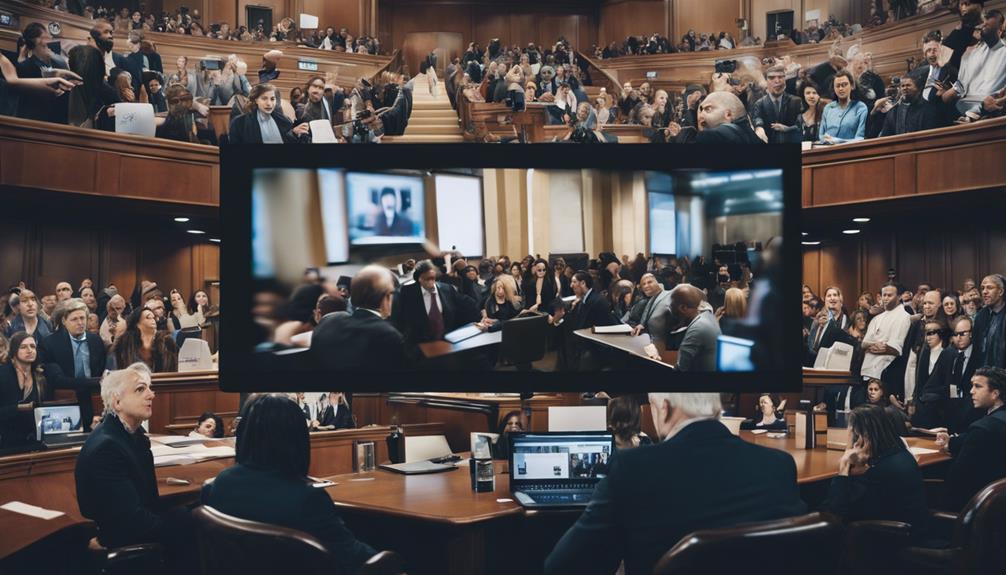
As the O.J. Simpson trial demonstrated, celebrity criminal trials often serve as a catalyst for social commentary, sparking intense debates about race, gender, and justice that resonate far beyond the courtroom.
The O.J. Simpson trial, in particular, highlighted the racial lines that divide society, with many seeing the verdict as a victory for African Americans and a blow to the justice system. The media's influence in shaping public perception was also evident, with the trial receiving 24/7 coverage that sensationalized every detail.
Additionally, the civil suit against O.J. Simpson for wrongful death served as a reminder that even acquittals can have significant financial repercussions for celebrities. The trial sparked intense public debate, with some hailing the verdict as a triumph for justice, while others saw it as a miscarriage of justice.
The O.J. Simpson trial serves as a prime example of how celebrity trials can ignite public debate and division, highlighting the complex interplay between fame, law, and public opinion.
The Intersection of Law and Fame
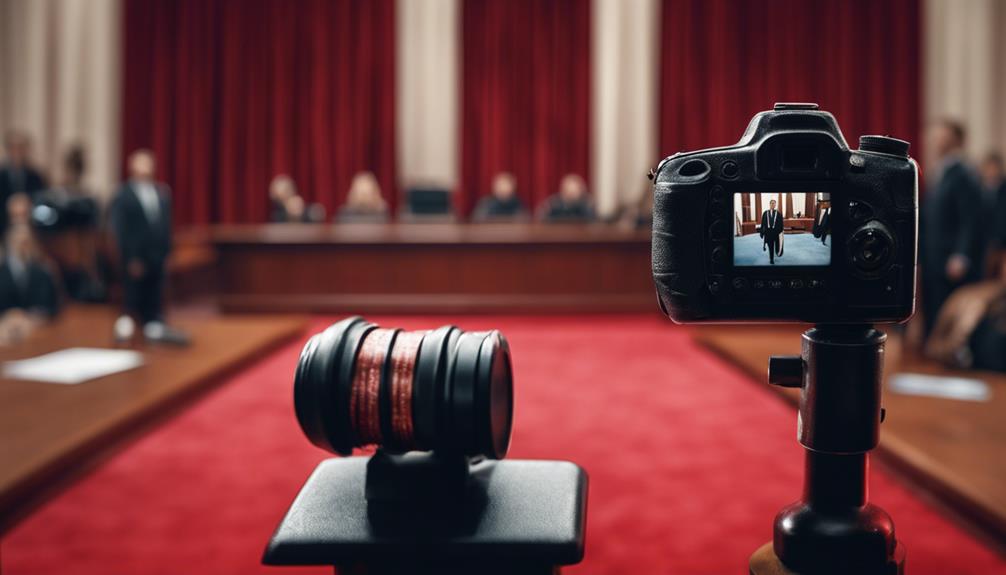
Celebrity criminal trials, like the O.J. Simpson case, have sparked intense debate about the intersection of law and fame, raising questions about whether high-profile defendants receive preferential treatment in the legal system. The O.J. Simpson trial, in particular, drew widespread attention due to the brutal murder of Nicole Brown Simpson and the subsequent acquittal of O.J. Simpson. This case, among others, has led to concerns about the influence of fame on legal outcomes.
Here are some key aspects of the intersection of law and fame:
- High-profile lawyers: Celebrity defendants often have access to renowned defense attorneys known for handling complex cases.
- Public perception: Public opinion and support during celebrity criminal trials can vary based on factors such as race, wealth, and prior reputation of the accused.
- Civil suits: The financial consequences of civil suits following celebrity criminal trials can result in substantial damages awarded to victims or their families.
- Fairness and privilege: Questions arise about fairness and privilege in the legal system, with some arguing that high-profile defendants receive preferential treatment.
Ultimately, the intersection of law and fame raises important questions about the fairness and integrity of the legal system.
Lasting Legacy of Notorious Trials
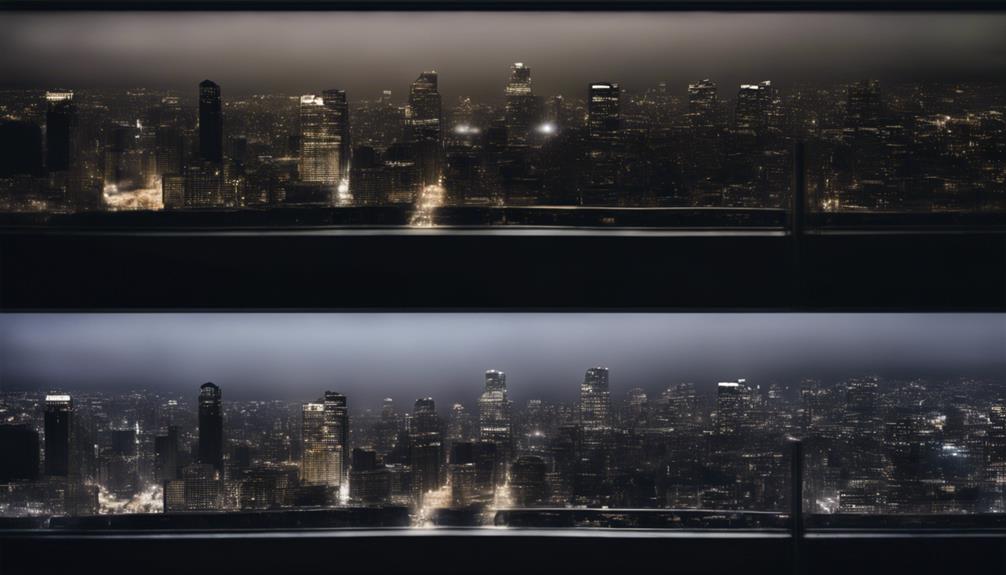
One of the most notorious trials in American history, the O.J. Simpson murder trial, continues to have a lasting impact on the legal system and popular culture. The trial's high-profile nature and controversial outcome have made it a focal point in legal history. The criminal trial, which lasted nearly a year, captivated the public and raised significant debates on race, gender, and celebrity justice.
| Category | Impact | Legacy |
|---|---|---|
| Legal System | Flaws in the legal system were highlighted | Changes in forensic evidence handling |
| Racial Lines | Divided public perception along racial lines | Challenging the notion of justice |
| Celebrity Justice | Shining a light on the complexities of celebrity justice | Raising questions about fairness |
The civil trial that followed the criminal proceedings found Simpson liable for wrongful death, resulting in a $33.5 million damages award to the victims' families. The Simpson trial's lasting legacy serves as a reminder of the complexities of high-profile cases and the need for a fair and just legal system.
Frequently Asked Questions
What Is the Most Famous Trial in History?
The most renowned trial in history is perhaps the trial of Jesus in 30 A.D. This trial has been widely discussed and debated, with its influence still felt today. It's a trial that has shaped the course of human history, leaving an indelible mark on the world.
What Happens After Acquittal?
After an acquittal, celebrities often face ongoing public scrutiny and media attention, making it challenging to rebuild their public image and career.
Acquittal doesn't necessarily mean exoneration in the public's eyes, as doubts and opinions about their innocence may linger.
The aftermath can involve legal battles, civil suits, and financial challenges, resulting in lasting impacts on their personal and professional lives.
What Was the Greatest Trial of the Century?
The O.J. Simpson trial of 1995 is widely regarded as the greatest trial of the century. This high-profile case captivated the nation with its televised proceedings and controversial verdict.
Notable lawyers like Johnnie Cochran and the Dream Team added to the trial's significance. Simpson's acquittal in the criminal trial, followed by a civil trial where he was found liable for wrongful death, showcased the complexities of the legal system.
What Was OJ Simpson Accused Of?
O.J. Simpson was accused of brutally murdering his ex-wife, Nicole Brown Simpson, and her friend, Ron Goldman, in 1994. The accusation stemmed from a history of domestic violence between Simpson and Nicole Brown Simpson.
Despite his claim of innocence and alibi, Simpson became the prime suspect due to the murders taking place at Nicole's condominium.
Conclusion
As the curtains close on celebrity criminal trials, a stark reality emerges: justice is often a spectator sport. The guilty and the innocent alike are reduced to mere characters in a twisted drama, with the public serving as judge, jury, and executioner.
And yet, amidst the chaos, we're reminded that even the most notorious trials can spark meaningful conversations about systemic flaws and societal ills, leaving an indelible mark on the fabric of our culture.

